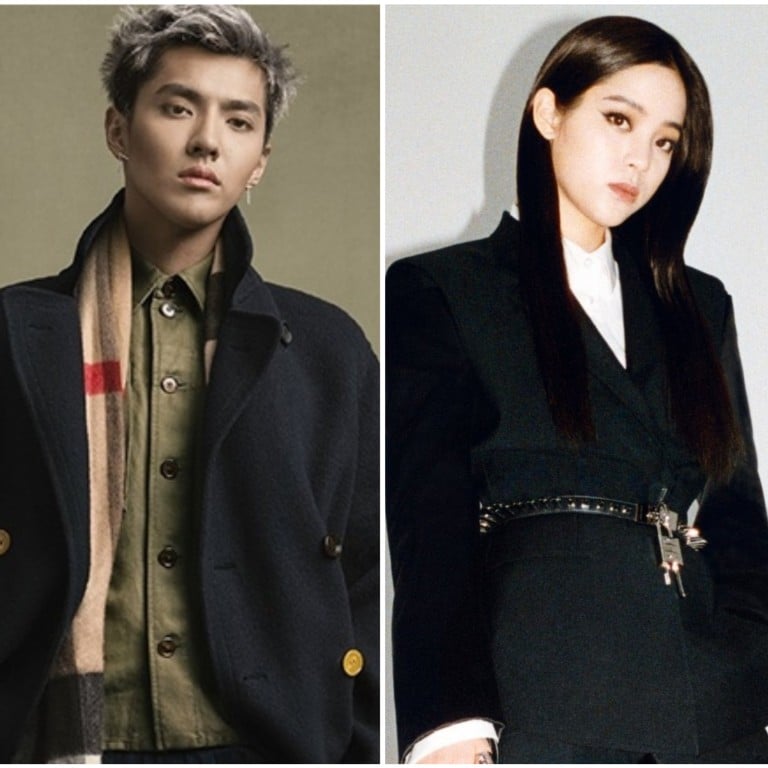The problem with C-pop and luxury: why Chinese fans of Wang Yibo, Ouyang Nana and Fan Chengcheng can make or break a fashion brands like Chanel and Burberry

- Young Chinese consumers will buy whatever Cai Xukun, Kris Wu, Fan Chengcheng or Ouyang Nana endorse, making millions of posts about their purchases on Weibo
- Prada dropped Zheng Shuang after a scandal and talent show Youth with You got cancelled after fans bought and dumped gallons of milk to get more QR voting codes
C-pop has undoubtedly been a driving force behind luxury’s explosive growth with China’s young consumers over the past two years, and brands continue to mine the industry for idol ambassadors with massive influence over millennials and Gen Zers.
Recent appointments include Wang Yibo for Chanel and pop stars Fan Chengcheng and Ouyang Nana for Givenchy. But despite luxury and fashion’s growing infatuation with C-pop, China’s increasingly hysterical fandom culture and the government’s repeated criticism over C-pop-related social scandals have become potential risks that could hamper brand PR agendas.

The rise of C-pop stars in luxury campaigns comes as a result of the surging purchasing power of China’s youth. A decade ago, the prestige of representing the world’s most coveted fashion houses was reserved for Western, Oscar-winning megastars that brands thought of as “aspirational” for their audiences. But the industry’s shift towards Gen Z and China has rewritten those rules, forcing brands to favour a star’s social media influence and commercial potential over traditional cultural measurements.
So far, C-pop celebrities have had huge success in helping brands regain media buzz and spike their sales, especially those labels that had lagged in market hype.

In October of 2016, British luxury brand Burberry appointed the Chinese rapper Kris Wu as its global brand ambassador, making him the group’s first non-British spokesperson. By the first quarter of 2017, Burberry’s financial report showed a 13 per cent year-on-year increase, with APAC leading the way with growth of 16 per cent. Wu’s image also gave Burberry’s Chinese social media presence a big boost. Since announcing the appointment, it saw Chinese user views of the brand’s WeChat marketing content more than triple.
Another remarkable example has been Prada’s appointment of idol Cai Xukun, better known as Kun, in 2019. The day after Kun’s announced the tie-up, the topic quickly rose to 730 million views on Weibo, with Prada’s campaign video featuring Kun played over 76 million times. Weeks later, Kun’s fans created a hashtag community where they posted more than 50,000 Prada shopping receipts, while a Prada keychain with Kun’s name was soon out of stock worldwide.
“Fans don’t know about Prada through us; they know Prada through Kun,” said the house’s director Miuccia Prada in an interview with Chinese media GQ Lab.